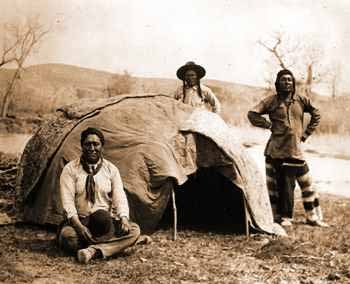Last Thursday morning, I listened to a presentation by a group of graduate students from the school of psychology where I’m faculty. The presentation was the group’s final project for a special course on ethics and diversity. This presentation focused on working cross-culturally with Native American clients. During the discussion which followed the presentation, class members shared experiences not only working with Native American clients but participating in ceremonies like smudging, sweat lodges, and vision quests.

Many Americans interested in spirituality seek out Native American ceremonies. I’ve participated in many different ceremonies myself. Participants often report the potency of the ceremonies and tribal practices. One aspect of the discussion which particularly strikes me is the willingness to physically endure discomfort and to make the sacrifices required in these ceremonies. Smudging, which is a cleansing ritual, assumes that there is something in or around an individual which needs to be cleansed or brought to wholeness. A sweat lodge, often compared to a sauna, requires fasting and usually an hour in the heat. A vision quest includes fasting and anywhere from one to four days spent alone in the wilderness without supplies. These ceremonies are potent because they require that a person challenges body, mind, and soul.
In addition to the potency found in Native American ceremony, many of my friends report the intensity of Buddhist retreats which require silence and simple vegetarian for over the period of the retreat be that a week or a month. But demanding spiritual practices are not unique to Native American or Buddhist traditions. However, in the Judeo-Christian faiths commonly practiced in North America, the spiritual practices have been so minimized that they have all but lost their potency.
It’s not that hunger, deprivation or pain are somehow good or inherently “spiritual.” Instead, the rituals surrounding these practices are meant to break us out of our ordinary, day-to-day perspective and break us open to experience something more. For example, the solitude, hunger, and physical challenge of a vision quest open an individual to seeing life differently than before. That’s part of the vision the participant seeks.
To live with mindfulness of the spiritual dimension of one’s life, other things in life must be sacrificed. No, we can’t have it all. We can’t live with integrity and continue to cheat people. We can’t live with compassion and condemn people. We can’t live lives marked by wholeness and healing and continue to do things that bring hardship and harm to others or to the world.
On Wednesday, Christians mark the beginning of the period known as lent. For most people, the experience of lent has no real potency because there is no real focus on what spiritual growth actually requires. But the tradition of lent is rooted the spiritual truth that requires us to set aside everything that prevents us fully integrating the spiritual dimension in our daily lives. The traditions of prayer, fasting, and almsgiving (charity to the poor) have merit in so far as they cause us to remember our need to rid our lives of those things which prevent us from living fully.

Native American ceremonies don’t have potency because there’s something magical about burning herbs or sweating in the dark for an hour with other people. No, the potency is about a focus which enables us to change for the good and live a better way. The ceremony or ritual itself is not the important part. It doesn’t matter whether one smudges with sweet grass or smears palm ashes on the forehead. What matters is that the ceremony or ritual evokes a response in us to set aside everything which prevents our growth and integration. Based on this perspective and as one who’s spiritual path is based on the teaching of Jesus, I invite others to join with me over the forty day period of lent to make explore ways to give up those things which prevent us from living whole, integrated and centered lives. That is the lenten journey.
I agree with you..!!Truly Native Americans are very rich in culture and spiritual practices. But the important thing is how we reflect and see things on our life..just like how they see life differently than before..
I do think this is a most incredible website for proclaiming great wonders of Our God!
Thank you for sharing!